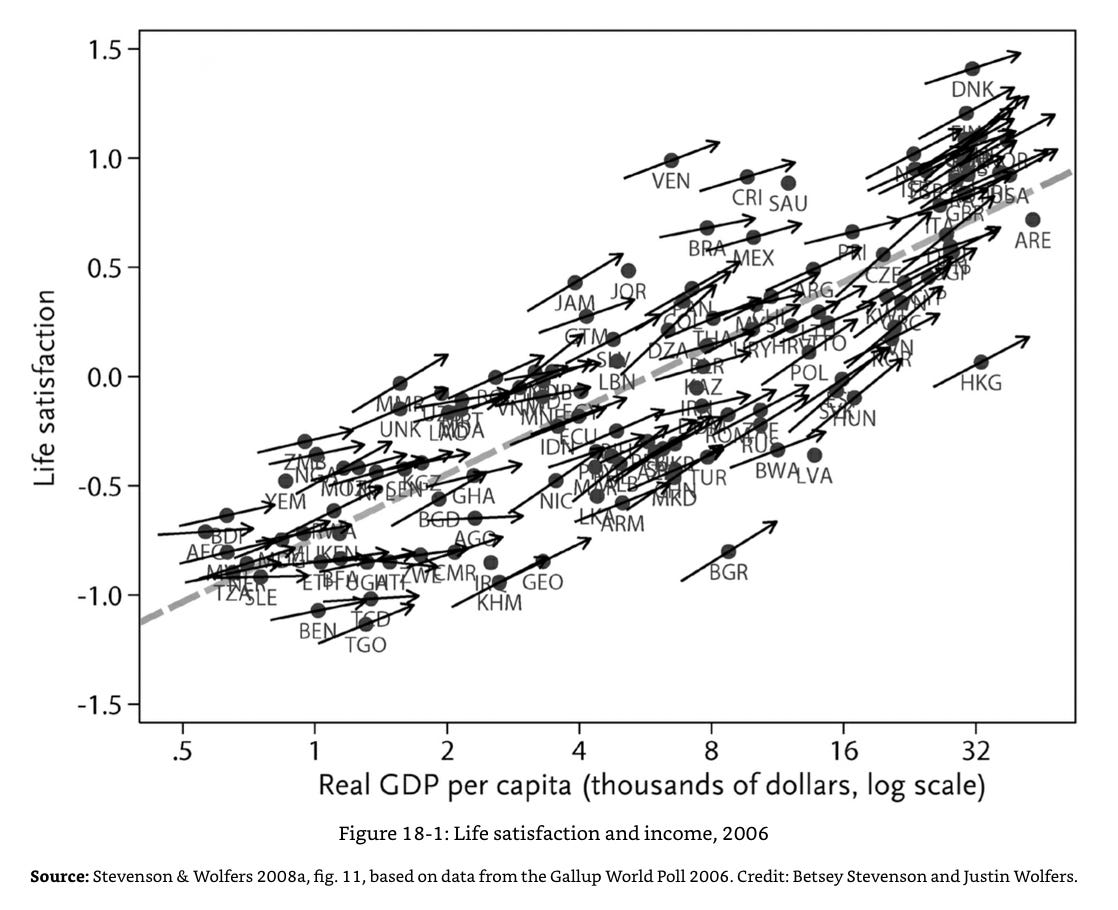Life satisfaction around the world...
...increases across and within countries with income (and thus over time)
We’ve seen over previous posts that by almost every measure our lives have got better over recent decades. As Stephen Pinker puts it:
An American in 2015, compared with his or her counterpart a half-century earlier, will live nine years longer, have had three more years of education, earn an additional $33,000 a year per family member (only a third of which, rather than half, will go to necessities), and have an additional eight hours a week of leisure. He or she can spend that leisure time reading on the Web, listening to music on a smartphone, streaming movies on high-definition TV, Skyping with friends and relatives, or dining on Thai food instead of Spam fritters.
Pinker, Steven. Enlightenment Now (p. 262)
But are we any happier? It could even be argued that all of this “progress” is for naught if we are simply spending out extra time on social media, becoming more distanced from genuine community, nature and spirituality. If our children, as is generally believed, are more anxious and troubled than ever, and suicide rates are increasing, then what is the point of it all? Are things actually getting worse, even if by many measures they appear to be getting better?
Over the next few posts we’ll tackle these questions head on.
First though, we’ll answer the central question - do people get happier as countries get richer? If so, we have good reason to believe that all this development and growth is indeed, on at least one level, worthwhile.
And the answer, of course, is that yes, they do. As you can see from the graph above, which shows average happiness ratings within individual countries and then (via the arrows) happiness ratings within countries as people get richer, the trend is remarkably consistent. People do get happier as they get richer. And as the world has got substantially richer over recent decades, the world has got happier.
A couple of things to note. The x axis here is a logarithmic scale, meaning that as people get richer, the amount of extra income needed to make them happier increases. And unlike income, reported happiness has a cap - usually ‘very happy’ is the top category. Thus increases in happiness must hit a limit over time, and in some countries that limit is being approached. But worldwide there is still a fair way to go before that happens, and thus continuing to increase income for most people will continue to lead to real happiness gains.
If you want to see world happiness increases over time broken down over time, check out this graph - it’s a cheerful one!



